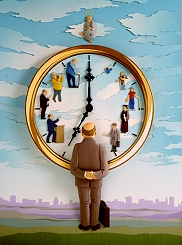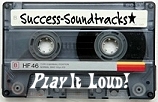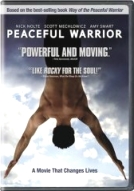According to the classic, best-selling self-help book, I’m OK-You’re OK, there are 3 things that make people want to change: pain, boredom, and belief.
 1. They hurt sufficiently.
1. They hurt sufficiently.
Pain is the great motivator. Unfortunatley, it’s only when pain is so very high that real change becomes possible. Why change if things are going well, or appear to be going well? Pain avoidance is arguably stronger than pleasure seeking.
2. Boredom.
Don’t confuse resting with being idle. Resting, without restlessness, is good. Idleness is dangerous. Left with too much time to do too much thinking leads too many people down too many wrong roads. Find something positive and healthy to do with that energy.
3. The sudden discovery that they can.
Once the realization that anything is possible comes into existence, action soon follows and real change begins to take place. Whatever you believe, so it will be. Therefore we have to believe that we can more than we can’t.
No one particularly likes to make changes, edits, or take do-overs in life. But people will change when they begin to believe it’s their idea to do so. Changes – of course – aren’t optional, they’re inevitable. It’s not a matter of if, but when.
 difficult in middle-age, and then returns to the joy of youth in the golden years.
difficult in middle-age, and then returns to the joy of youth in the golden years.
 that most of us face. They can be managed and balanced given the proper perspective, honest evaluation, and ongoing attention. So where are you on the continuums?
that most of us face. They can be managed and balanced given the proper perspective, honest evaluation, and ongoing attention. So where are you on the continuums? I think, for a lot of us, working out or exercising and embarking on “spiritual” pursuits are procrastinated similarly. It usually goes something like this: 1) you know you ought to, 2) you realize it’s good for you, 3) you often don’t feel like it, 4) but when you do, you’re always glad that you did.
I think, for a lot of us, working out or exercising and embarking on “spiritual” pursuits are procrastinated similarly. It usually goes something like this: 1) you know you ought to, 2) you realize it’s good for you, 3) you often don’t feel like it, 4) but when you do, you’re always glad that you did. An extra pause, properly placed, followed by careful consideration of word choice, can go a long way. Your communication IS who you present yourself to be. Check out Seth Godin’s post called
An extra pause, properly placed, followed by careful consideration of word choice, can go a long way. Your communication IS who you present yourself to be. Check out Seth Godin’s post called 
 in nightclubs, conservative people. And I had been doing that for the better part of 10 years when it finally dawned on me that I was in the wrong places doing the wrong things for the wrong people.” – George Carlin on evolving his comedy act in the early 1970’s.
in nightclubs, conservative people. And I had been doing that for the better part of 10 years when it finally dawned on me that I was in the wrong places doing the wrong things for the wrong people.” – George Carlin on evolving his comedy act in the early 1970’s.